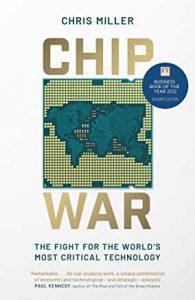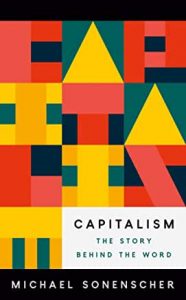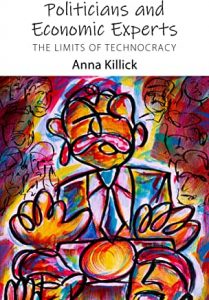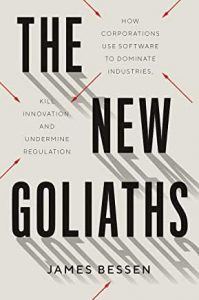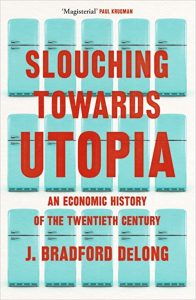I highly recommend Chris Miller’s Chip War: The Fight for the World’s Most Critical Technology. It starts with the history of the development of semiconductors, which might be familiar from other Silicon Valley histories (such as Margaret O’Mara’s also excellent The Code). But the book then goes on to less familiar and more recent territory, encompassing the technological changes needed to manufacture ever-more precise chips and the huge scale, complexity and sophistication of their fabrication. This introduces companies that have recently become familiar (AMSL in the Netherlands, making the machines that are needed to do the fabrication, and TSMC in Taiwan, which produces more than 90% of the most advanced chips) – and also others key to the process that are still not very well known in general.
The narrative arc is a steady shift from US leadership in both technology and manufacturing, to Asian leadership in manufacturing and rapid catch-up – especially in China thanks to large-scale subsidies and IP theft – in some slices of the technology. The result is an extraordinarily complex global supply chain with a number of very narrow 1 or 2 firm bottlenecks. The best to hope for seems to be a version of the Mutually Assured Destruction doctrine: no country can afford disruption. The worst? Massive disruption of all aspects of modern economic life.
That there would be some shift seems inevitable: as East Asian economies developed in the late 20th century they would always try to move up the value chain into more sophisticated sectors. However, the book is quietly but strongly critical of the pro-globalisation philosophy of the US (and rest of the west) that gave up on retaining core manufacturing and engineering competencies at home – their loss didn’t matter until it really did, with the re-emergence of geopolitical strife. As the book puts it, there was a “liberal internationalist ethos that guided officials of both political parties amid America’s unipolar moment.” Yet Andy Grove’s paranoia was valid, when he said in the early 2010s: “Abandoning today’s ‘commodity’ manufacturing can lock you out of tomorrow’s emerging industry.” (One of the best summary articles making eactly this point is Gregory Tassey in JEP in 2014.)
There is a lot of interesting detail. For example, I hadn’t realised how much Darpa focused on educational infrastructure – funding students and workshops, and university computer equipment, as well as futuristic tech research. There are lots of great examples of the difficulty of copying advanced chip technology because of the necessary tacit knowledge: for instance, every AMSL photolithography machine comes with a lifetime supply of AMSL technicians to tend to it. This is either hopeful – China will find it hard to catch up fully – or not – the US or EU will not be able to catch up with TSMC because of the latter’s vast embedded know-how. Another example is the fact that defence dollars bought 72% of all integrated circuits produced in 1965, but Robert McNamara’s deffence budget cuts led Robert Noyce of Fairchild to bet on the consumer market and slash chip prices from $20 to $2. Annual US computer sales went from 1000 in 1957 to 18,700 a decade later.
All this and much more. The book has no easy policy solutions but is an essential contribution to current debates about industrial policy.
